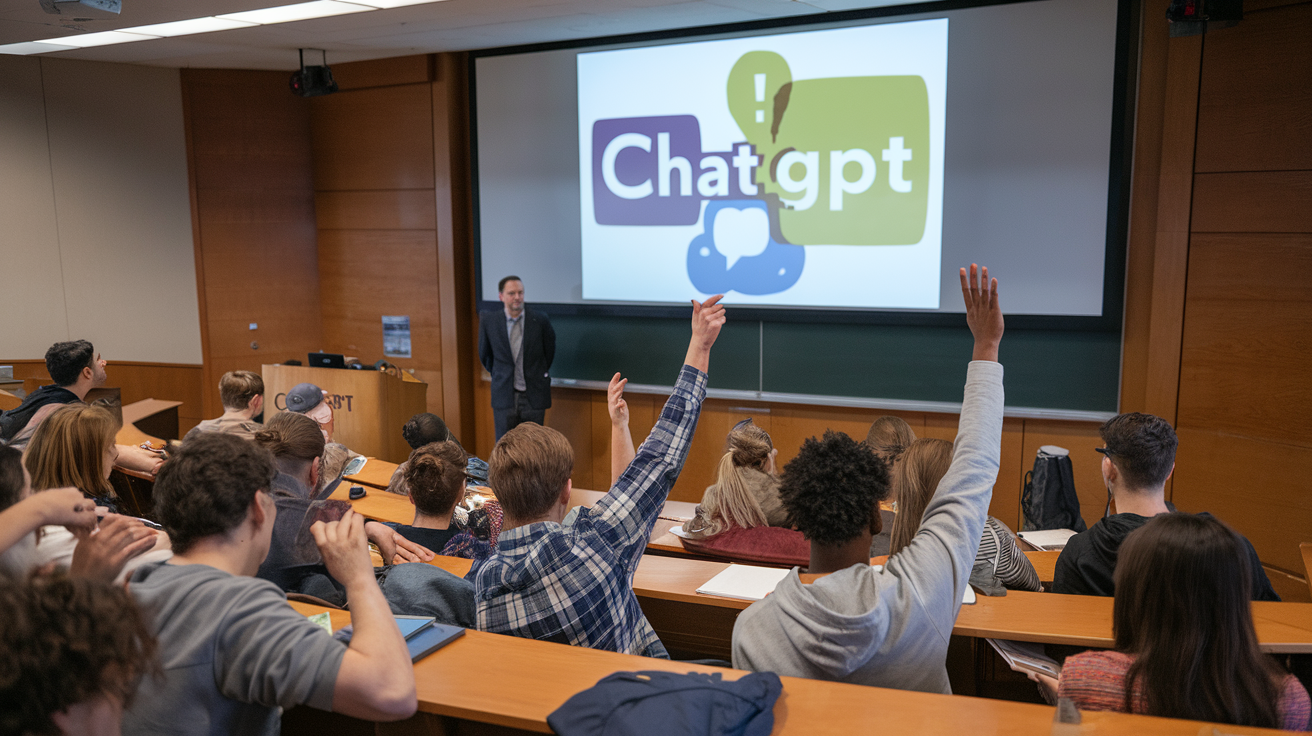
Imagine shelling out $8,000 for a college course, only to find out your professor outsourced their teaching to ChatGPT. This is the reality faced by Ella Stapleton at Northeastern University, who is now demanding a tuition refund after discovering her business professor, Rick Arrowood, was using AI to generate course materials. The evidence? Blatant factual errors, bizarre artificial image anomalies, and even a direct ChatGPT citation within the course content.
Northeastern University’s swift rejection of Stapleton’s refund request has ignited a fierce debate surrounding academic integrity in the AI era. As universities and educators increasingly integrate artificial intelligence tools into their curricula and teaching methods, critical questions arise: where do we establish ethical boundaries?
Are students receiving the quality education they are paying for when professors heavily rely on AI-generated content without rigorous oversight and fact-checking? This incident at Northeastern University throws into sharp relief profound concerns about the fundamental value of higher education and the evolving ethical responsibilities of educators navigating a rapidly advancing technological landscape.
The Northeastern University Incident

In a controversy that has sparked national debate, Northeastern University student Ella Stapleton demanded a tuition refund after discovering her professor was using ChatGPT to generate course materials. Stapleton, who pays approximately $42,000 annually for her education, felt deceived upon learning that Professor Rick Arrowood had been utilizing the AI tool for feedback and assignments.
A. Ella Stapleton’s tuition refund demand
Stapleton formally requested a $2,300 refund—the cost of the specific course—arguing that she had paid for human expertise, not AI-generated content. Her bold stance quickly gained traction among fellow students and across social media platforms, highlighting growing concerns about AI’s role in education.
B. Professor Rick Arrowood’s use of ChatGPT for course materials
Professor Arrowood, a faculty member in Northeastern’s College of Professional Studies, reportedly used ChatGPT to create assignment instructions, provide feedback, and develop course materials. When confronted, he acknowledged using AI as a productivity tool but maintained that his expertise still guided the course content and direction.
C. How the student discovered AI-generated content
Stapleton first became suspicious when noticing repetitive phrases and unusually generic feedback on assignments. Her suspicions were confirmed when she input portions of the professor’s communications into an AI detection tool, which indicated high probability of AI generation. Further investigation revealed distinctive ChatGPT patterns throughout various course materials, including identical phrasing in feedback provided to different students.
The University’s Response
A. Rejection of refund request
Northeastern University firmly rejected students’ demands for refunds, stating that the professor’s use of ChatGPT still involved substantial human oversight and curriculum design. The university maintained that the AI was merely a supplementary tool, not a replacement for the professor’s expertise and guidance in the course.
B. Institutional stance on AI in education
The university defended its position by highlighting their commitment to incorporating innovative technologies into education while maintaining academic standards. Northeastern issued a statement emphasizing that AI tools represent the future of professional environments that students will encounter after graduation, positioning their integration as preparation for real-world scenarios rather than a diminishment of educational quality.
Ethical Implications of AI in Higher Education

Student expectations vs. AI reality
When students enroll in college, they expect direct instruction from credentialed professors, not AI-generated content. The Northeastern incident highlights this disconnect, as students invested in education delivered by human experts with real-world experience. When AI replaces this essential human element, students rightfully question the value they’re receiving.
Quality concerns in AI-generated educational content
While ChatGPT can produce coherent text, it lacks the nuanced understanding and critical thinking skills of human instructors. AI systems can generate plausible-sounding but factually incorrect information, potentially spreading misinformation. Furthermore, AI cannot adapt to individual learning styles or provide the mentorship dimension that forms the cornerstone of higher education.
Value proposition of college education
College tuition represents an investment not just in content delivery but in human guidance, personalized feedback, and intellectual growth. When institutions substitute AI for professor engagement, they fundamentally alter this value proposition. Students expect their substantial financial investment to secure access to human expertise, professional networks, and personalized development—elements no AI system currently provides.

The incident at Northeastern University highlights the growing tension between traditional education and AI technology in academic settings. As students like Ella Stapleton demand accountability for the quality of education they pay for, institutions must carefully consider how they integrate tools like ChatGPT into their teaching methods. The university’s response—rejecting the tuition refund request—raises important questions about what students are truly paying for in higher education.
Conclusion: As AI continues to permeate academia, we must address the ethical implications head-on. Educators have a responsibility to properly vet AI-generated content and maintain oversight of their course materials. The ultimate value of education lies not just in the information provided, but in the human expertise, guidance, and critical thinking that professors bring to the classroom. Moving forward, universities must establish clear guidelines for AI use that protect educational quality while embracing technological advancement.
LATEST
-
Journey to the Unknown: The Astonishing Speed of Satellites
Have you ever gazed up at the night sky and marveled at the twinkling…
-
7 Reasons Why iPhone 17 Pro Will Make Your Current Phone Obsolete
The smartphone world is about to witness a seismic shift. As Apple gears up…










